From coast to coast
March 1st, 2020 – Lakatoro
There was a fair bit of rain last night, and in the morning, temperatures were a little cooler (although humidity was close to 100%!), so I figured I’d try to embark on a little adventure I’d been planning. Malekula they say is shaped like a sitting dog – I can sort of see it – and Lakatoro, where I stay, is pretty much on the east side of the dog’s collar.
I’d heard tell that there was a dirt road running East-West along the dog’s collar, crossing the island at its narrowest. I’d also heard tell that there was a settlement called Losinwei on the other side, and when reading about Losinwei, the scant info I found out about suggested it had some spectacular cascades to see.
So my plan was thus. Pack water, bananas, reef shoes, bush knife and set off on foot to Losinwei. Some map studying told me it was about 25km to Losinwei, which would be too much to do a return journey, but I was hoping I might be able to travel at least some of the way by hitching a ride on a truck, or if no truck to be found (there really isn’t much traffic on Sundays), I could always turn back if I was getting worried about the return journey.
So I put the plan into action, although managed to forget my bushknife in the kitchen, which was a bummer. I also had meant to pack my drybag, which turned out later to be a problem too.
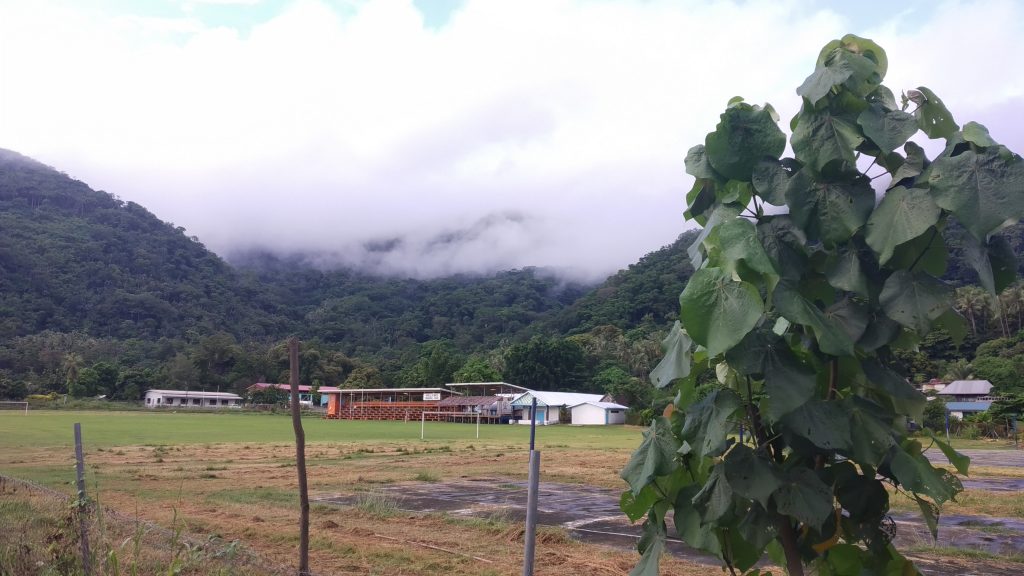
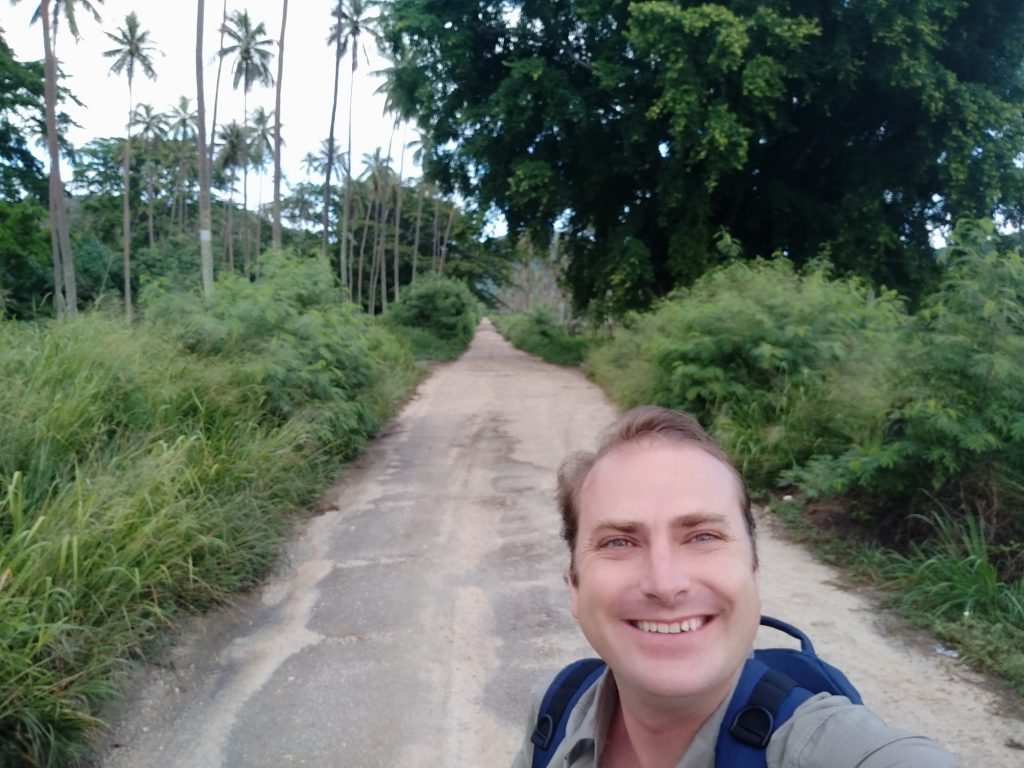
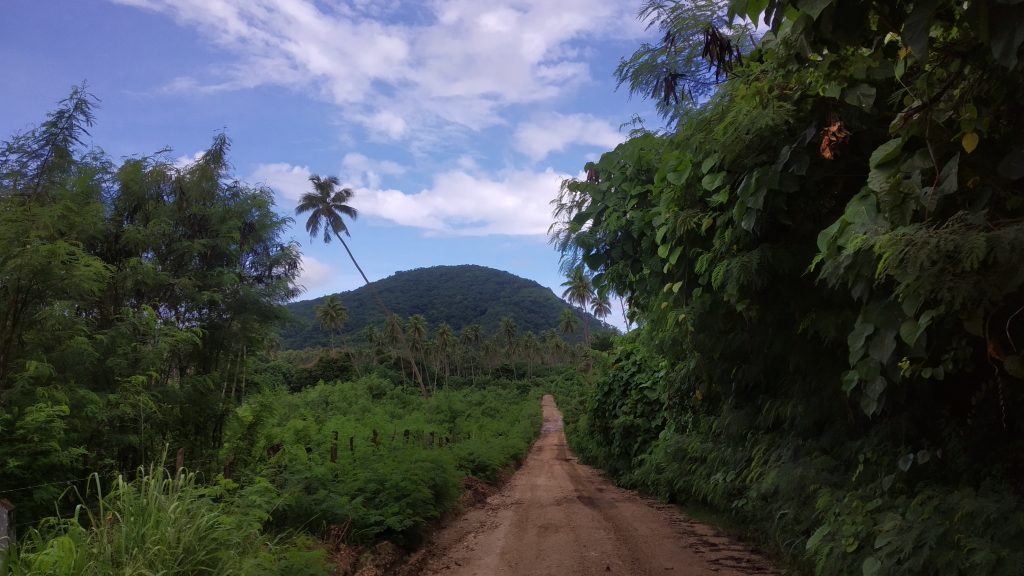
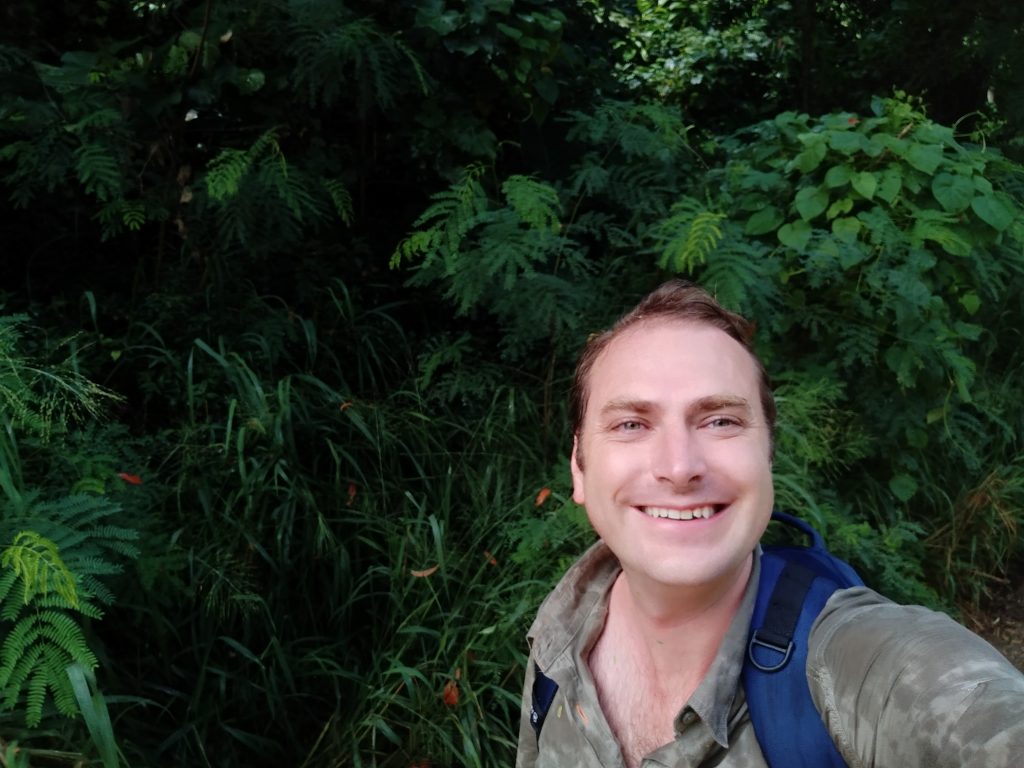
I’d been walking about 2 hours, and hadn’t seen a single truck on the road, so was contemplating maybe turning back, but then as luck would have it, a truck came trundling along with a couple of guys in it. They weren’t going the whole way to Losinwei, and were turning off after about 8km to go to the village of Lambumbu (sic), but terrain was pretty tough at this point, and I hopped on. Was a good call, because it still left me a pleasant walk to Losinwei, but the bit on the truck was definitely through the most challenging terrain (steep hills and very muddy) of the day.
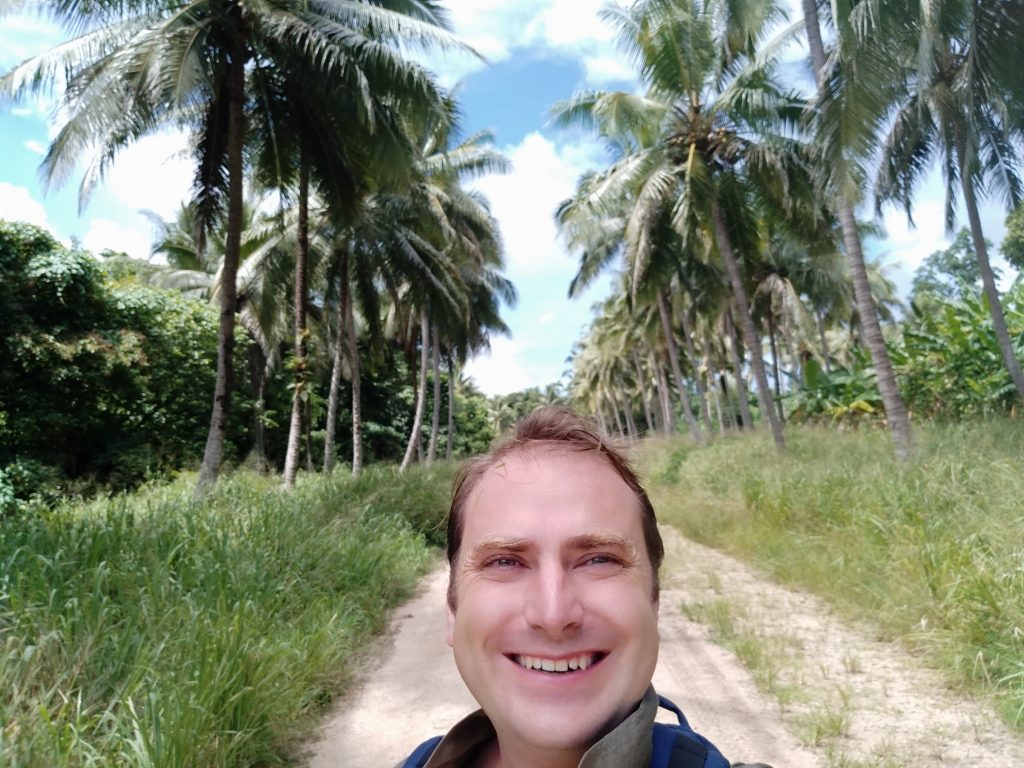
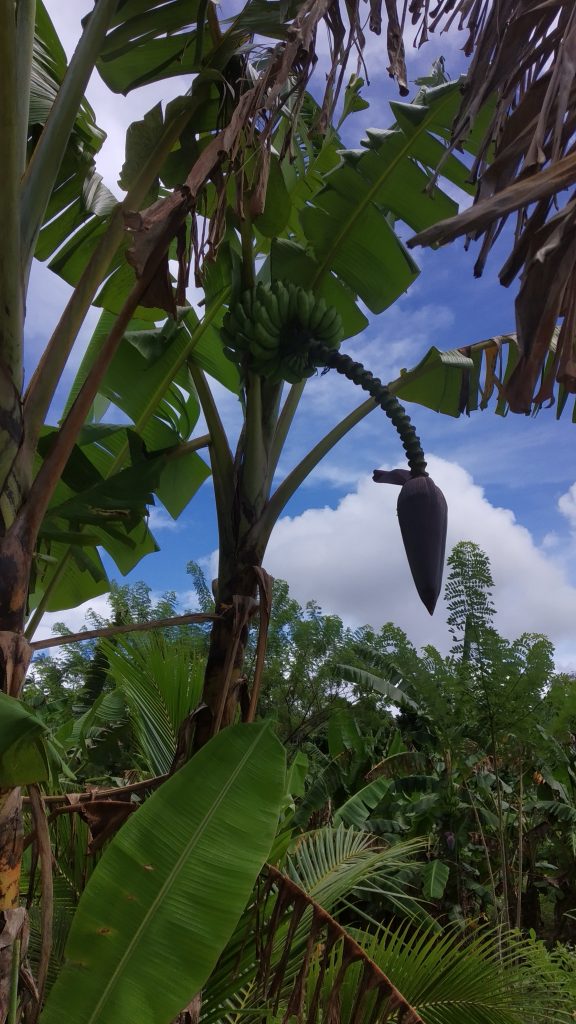
And then, after a steep descent, I found myself in Losinwei. The settlement is pretty small, about 10 grass huts, which all seemed to be deserted, but the location is one of the most stunning places I’ve ever visited in the world. The sea cuts into the jungle hills in a narrow channel almost like a fjord, and then there’s a pristine beach wherever the land meets the water. I was pretty toasty by this point, it being around 1:30pm, so I staggered into one of the deserted huts and sat down in the shade. The hut was beautifully designed, with the thatched roof supported by timber beams, but crucially open on all four sides, allowing a cool ocean breeze to flow through as well as an uninterrupted view of the beachfront.
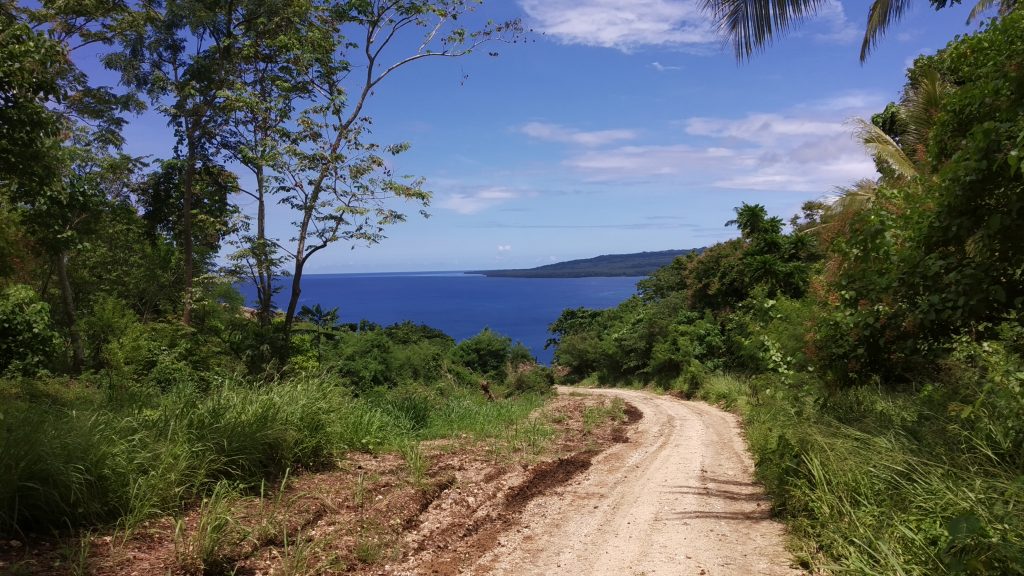
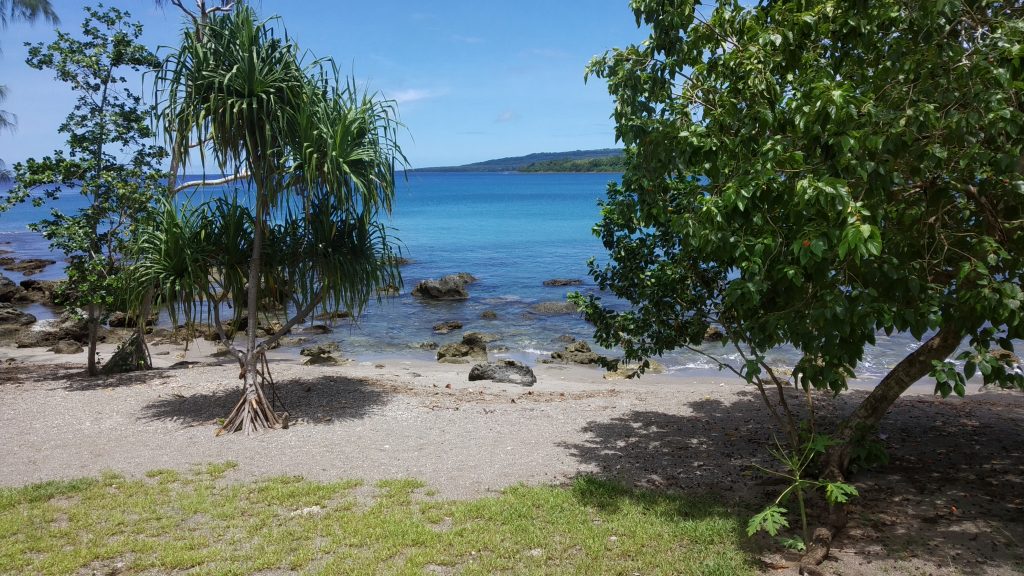
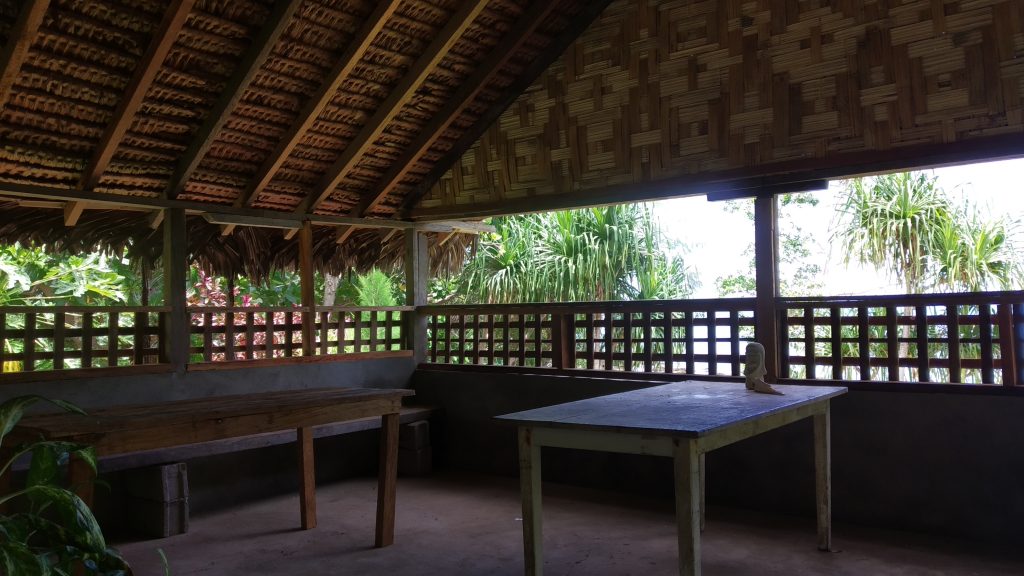
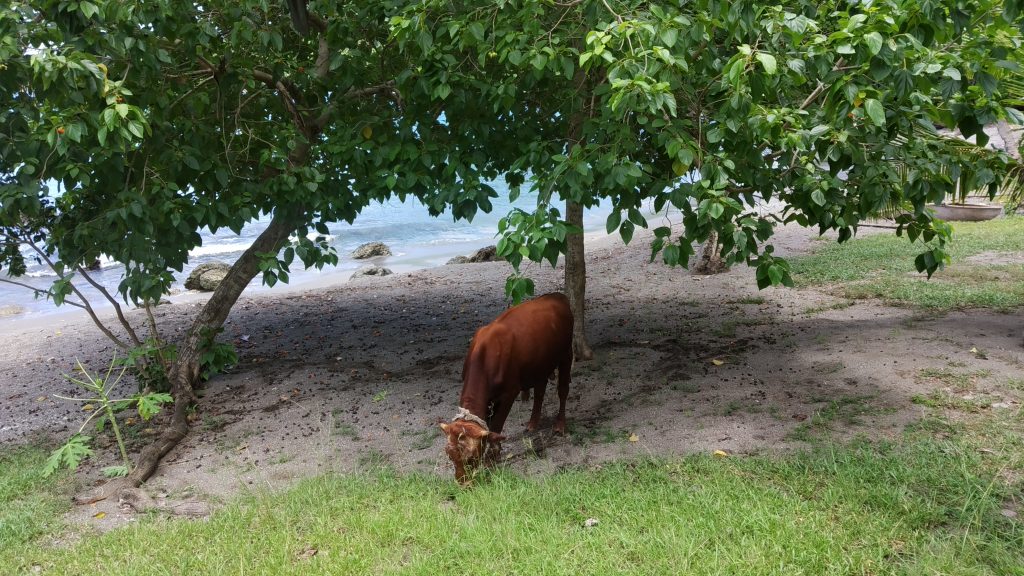
After waiting in the hut to cool off, a man came swimming out of the sea, saw me and greeted me. I told him in my best Bislama that I’d like to see the waterfall, and he asked me to wait and he’d see if he could find someone to take me there. I suggested I could take a dip in the sea while I waited, and he thought that was a good plan. I’m still peeling from the sunburn I sustained snorkeling last weekend, and my clothes were soaked with sweat anyway, so I just went in fully clothed. Was luscious, warm like a bath, so clear I could see the coral without a bath, and with simply one of the most stunning views back to shore.
When I got out, the guy I had spoken to before introduced me to Chief Setla, and it turns out Chief Setla wanted to take me to the waterfall. In conversation during the walk (all in Bislama, Jif Selta no toktok English), the chief told me he was 87 years old, that all the land of Losinwei belonged to him, including the trek up the river to the falls. I was expecting this to be a short 15 minute trip, but it was more like 50 minutes through some of the densest jungle terrain I’ve ever encountered. The chief was hacking and slashing with his bushknife, which made me jolly upset I’d left mine at home. We crossed the river multiple times, and my reef shoes took a beating, as did my now-bleeding ankles. Needless to say, the chief wasn’t even breaking a sweat and was barefoot. He is one tough chap.
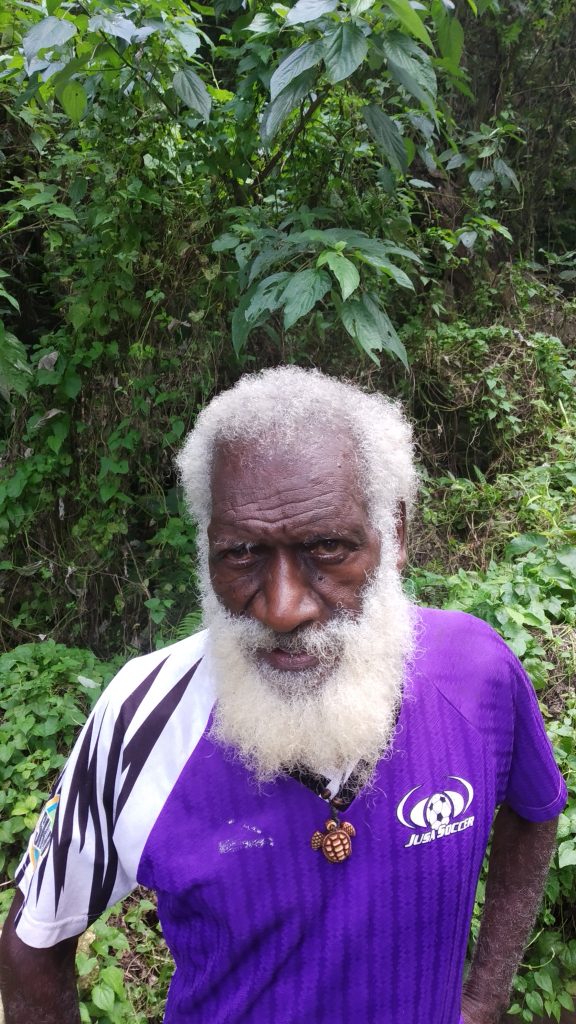
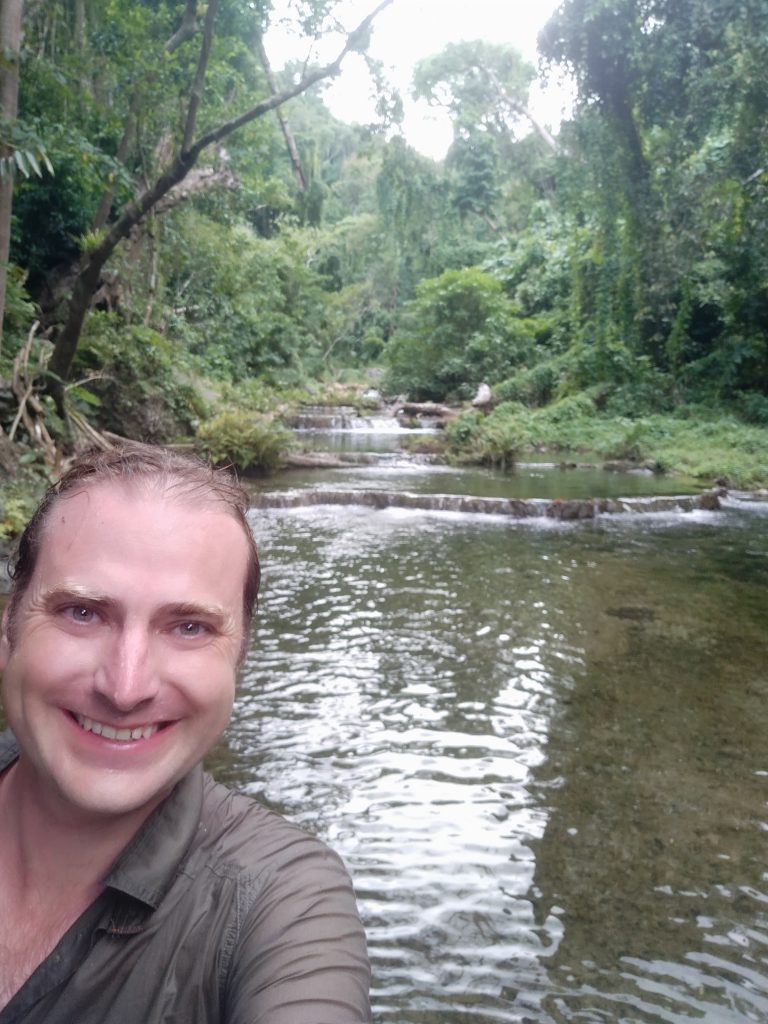
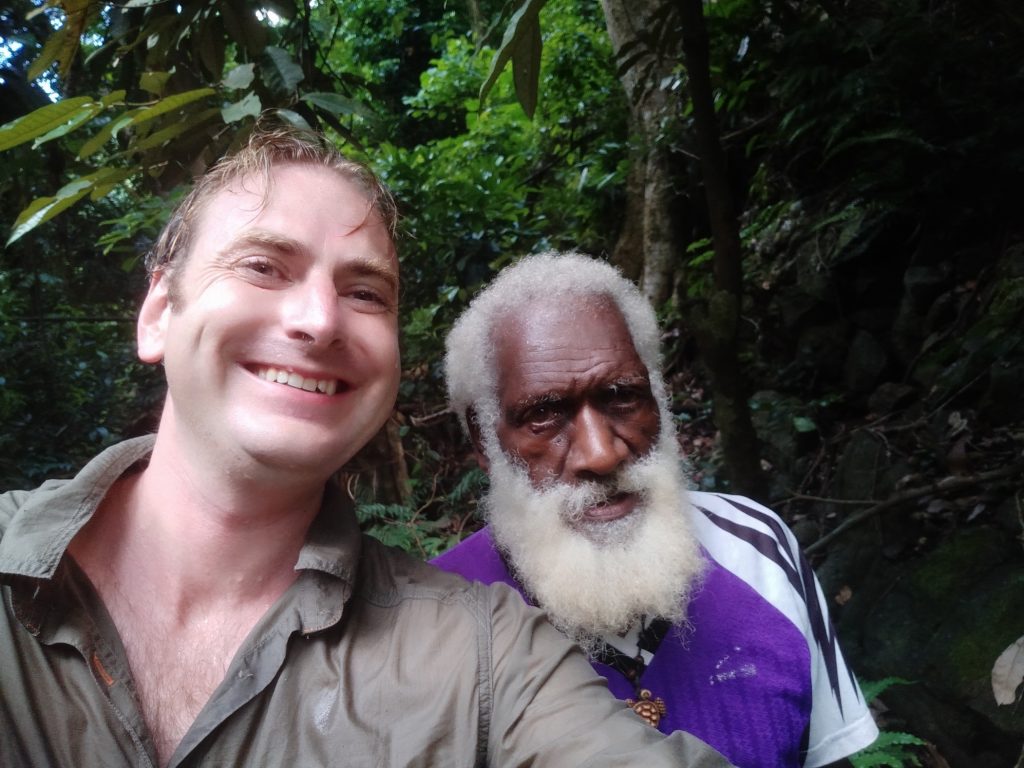
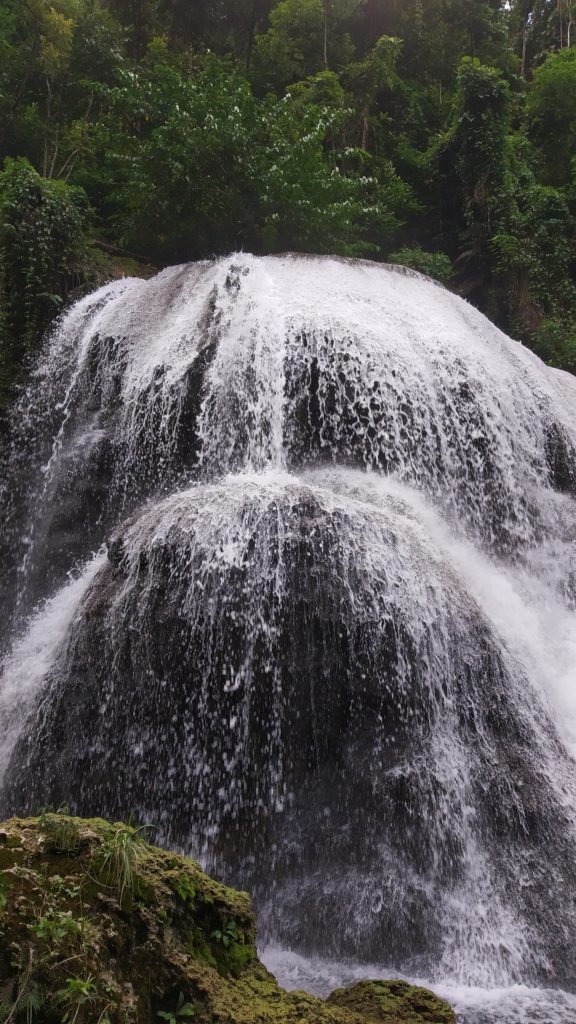
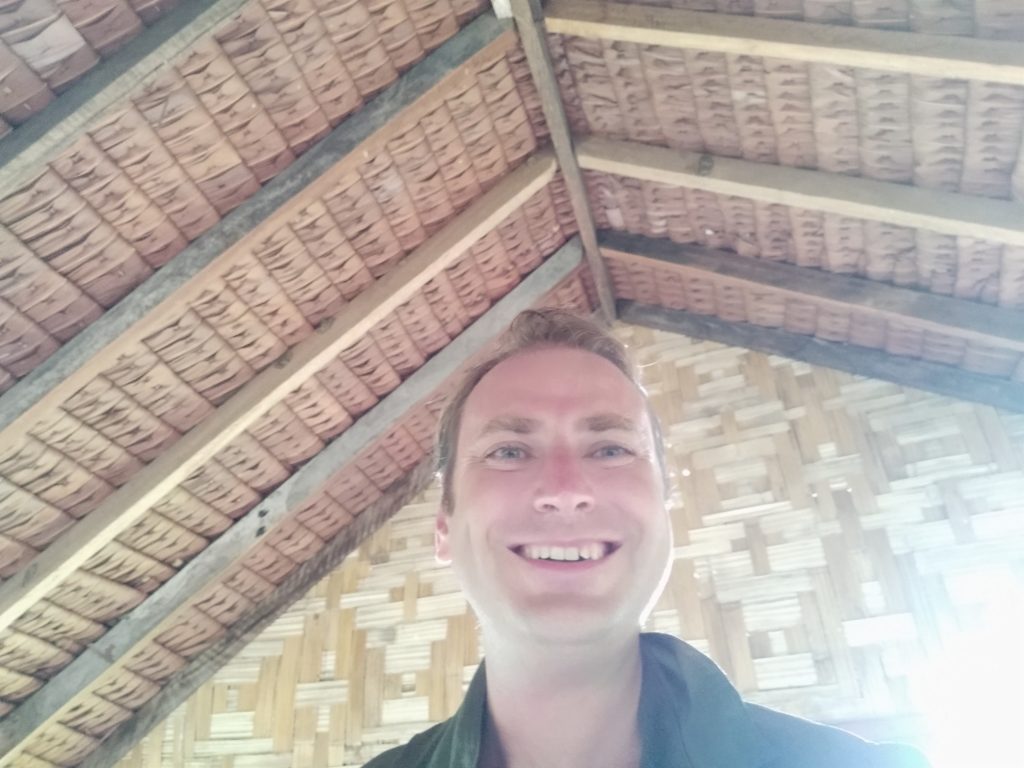
When we were sat at the falls, catching my breath before the descent back to Losinwei, the chief got all serious (he already is the most serious person I know), and asked me for my opinion as to whether he should consider selling part of his land to the white men (he knew I am working for the province, trying to raise money from foreign investors), as apparently he had been approached and offered vast sums of money for a resort to be built at Losinwei. I thought about it briefly, and my verdict was that if he needed the money for something (typically school fees or medicine are the only two expenses faced by these off-grid types), then he could certainly consider selling, but in the meantime, he and his family were getting more use, joy and life out of the land than he would get out of a million dollars. He sat in silence for a while then harrumphed his agreement and we set off back to the village. I think this is a bit of an internal conflict I’m facing since my arrival here. Everyone, including the VSA, seems keen to help Vanuatu develop, but I’m not actually certain it’s in the Ni-Vanuatu’s best interests to develop. Vanuatu is quite unlike any other poor country I’ve ever been to. The thing is, the islands are sparsely populated, meaning everyone owns land. And the land is unbelievably fertile, meaning no-one ever goes hungry, nor does anyone have to work if they don’t feel like it. As a result, the vast majority of Ni-Van are pretty happy with their lot, hence the very high scores on country happiness indices. The downsides to this utopia are the urban centres which are more developed, but uglier and harsher as a result. I truly think closed border self-isolation may not be such a bad thing for a country like Vanuatu. But the holders of power (the UN, foreign governments, and domestic politicians) all disagree with me, and so I must continue my role here of helping the ni-Vans have development thrust upon them.
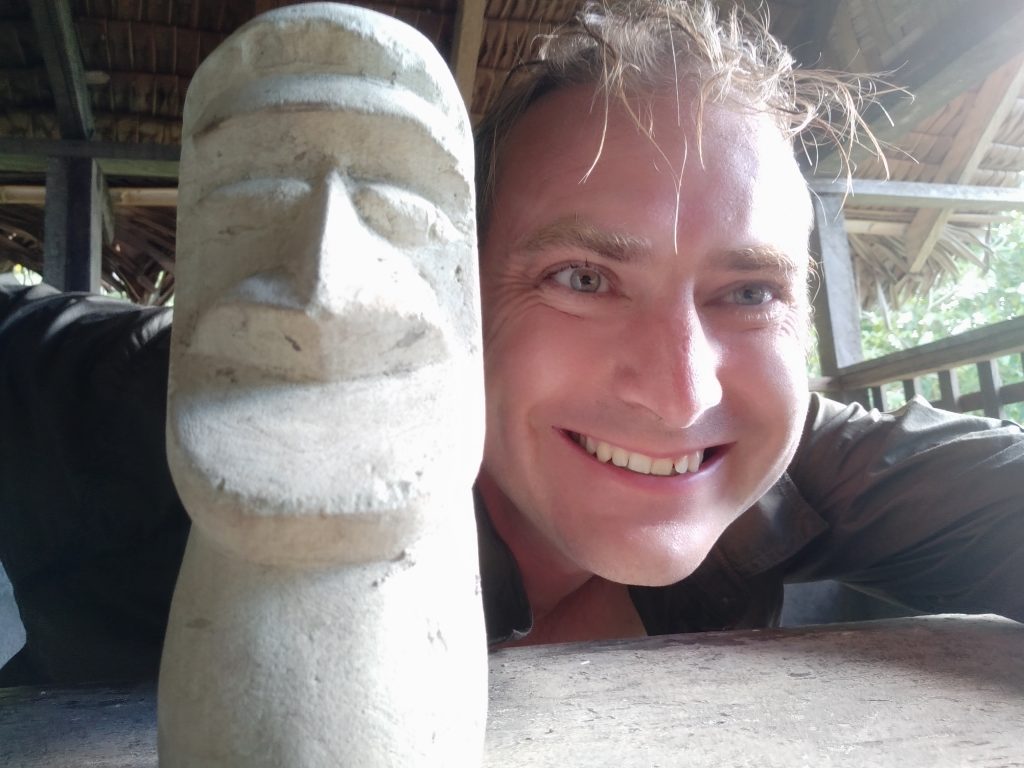
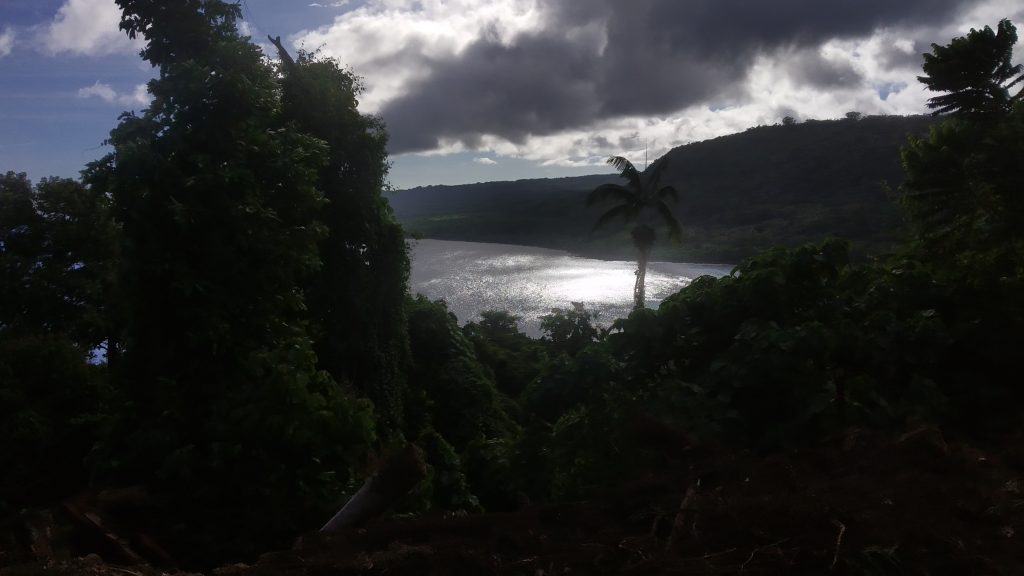
I was fearful of not being able to get a truck back and facing a five hour slog back home, but fortunately one came along shortly after I reached the top of the hill. It was already fit to bursting, with 6 passengers in the cab and 9 in the bed, but they enthusiastically waved me on to the back (standing room only). No photos, as I was hanging onto the two inches of the steel roll bar that they had vacated specially for me. The driver was on a mission to travel the potholed dirt road as quickly as possible, and it was a pretty hairy ride. They dropped me at the junction, as they were going off to Norsup, and I walked the last few kilometres back home. Arrived at home horrifically sweaty, with sore feet, and quite dehydrated, but man did it feel good to have embarked on an adventure and returned with all objectives complete.
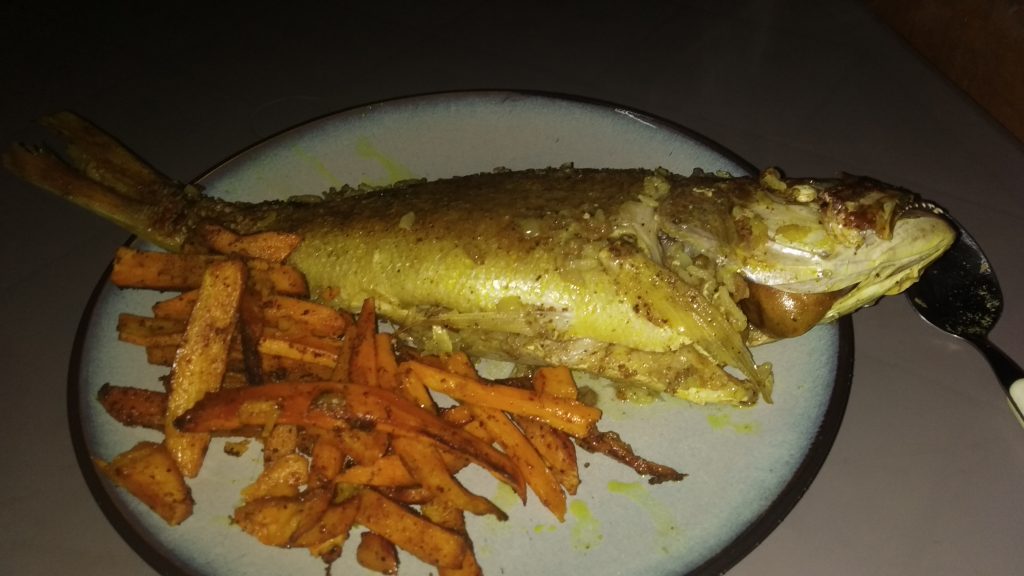
I cooked myself dinner, and am now about to drift off to sleep. Going to sleep well tonight, I feel.
2 thoughts on “From coast to coast”
Wow -what an adventure. Loving the blog Poggle
There was once a businessman who was sitting by the beach in a small village.
As he sat, he saw a fisherman rowing a small boat towards the shore having caught quite few big fish.
The businessman was impressed and asked the fisherman, “How long does it take you to catch so many fish?”
The fisherman replied, “Oh, just a short while.”
“Then why don’t you stay longer at sea and catch even more?” The businessman was astonished.
“This is enough to feed my whole family,” the fisherman said.
The businessman then asked, “So, what do you do for the rest of the day?”
The fisherman replied, “Well, I usually wake up early in the morning, go out to sea and catch a few fish, then go back and play with my kids. In the afternoon, I take a nap with my wife, and evening comes, I join my buddies in the village for a drink — we play guitar, sing and dance throughout the night.”
The businessman offered a suggestion to the fisherman.
“I am a PhD in business management. I could help you to become a more successful person. From now on, you should spend more time at sea and try to catch as many fish as possible. When you have saved enough money, you could buy a bigger boat and catch even more fish. Soon you will be able to afford to buy more boats, set up your own company, your own production plant for canned food and distribution network. By then, you will have moved out of this village and to the town where you can set up HQ to manage your other branches.”
The fisherman continues, “And after that?”
The businessman laughs heartily, “After that, you can live like a king in your own house, and when the time is right, you can go public and float your shares in the Stock Exchange, and you will be rich.”
The fisherman asks, “And after that?”
The businessman says, “After that, you can finally retire, you can move to a house by the fishing village, wake up early in the morning, catch a few fish, then return home to play with kids, have a nice afternoon nap with your wife, and when evening comes, you can join your buddies for a drink, play the guitar, sing and dance throughout the night!”
The fisherman was puzzled, “Isn’t that what I am doing now?”